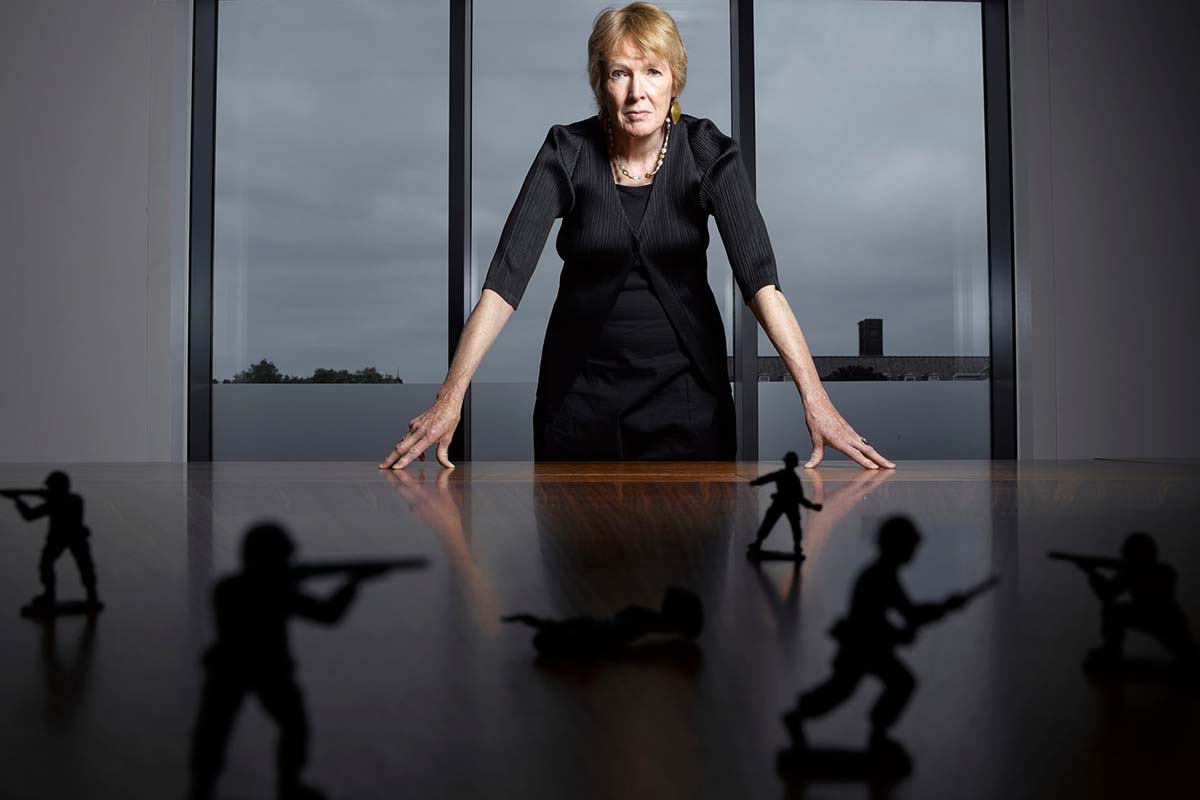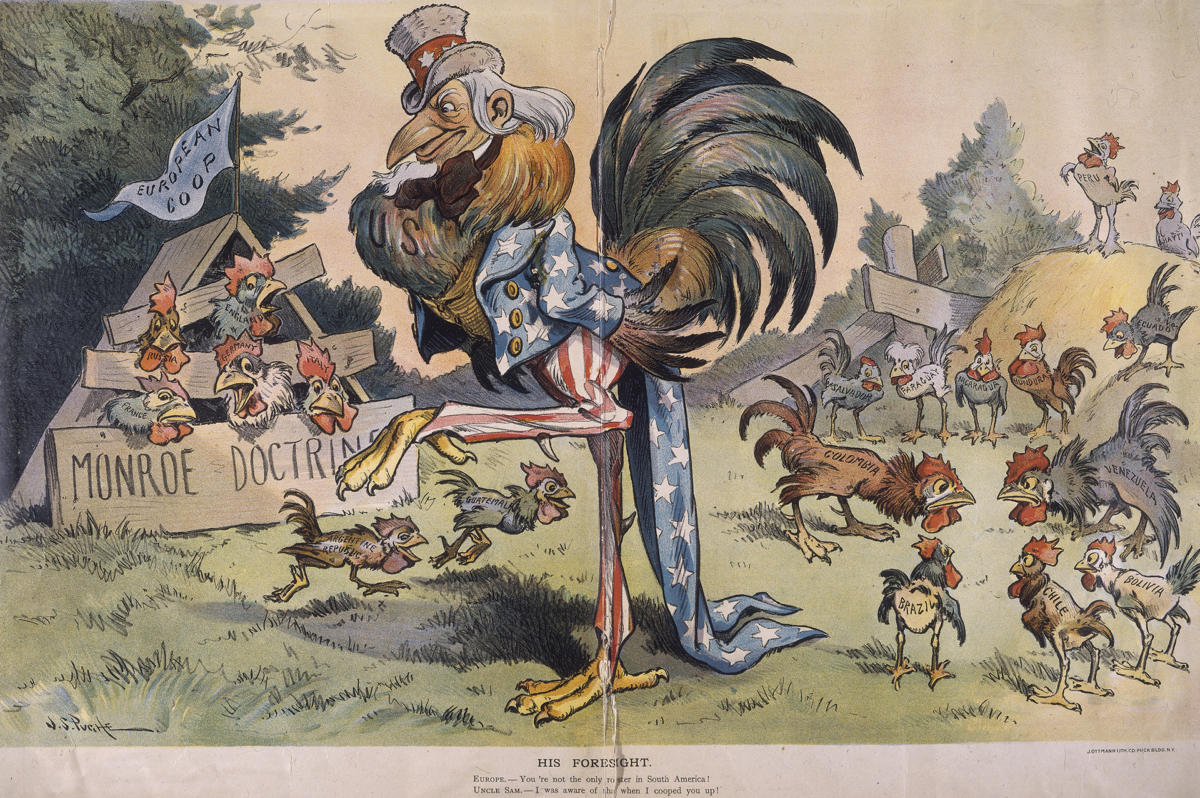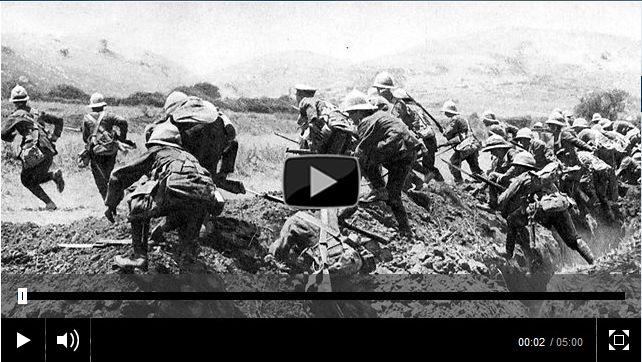THE GUARDIAN

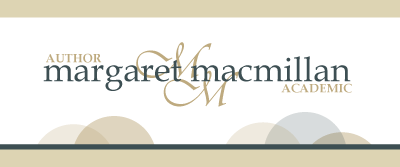
IT WOULD BE STUPID TO THINK WE HAVE MOVED ON FROM WAR
Many of us – and as a Canadian I certainly include myself – have lived so long in what historians are starting to call the Long Peace that we have come to assume that war is an abnormality. Something that may afflict others, from different cultures in far-off places. War for us, we think, belongs firmly in the past. And it is true that large parts of the world have not had to endure state-to-state wars for decades. The majority of the world’s nations have also been spared the scourge of civil wars, although many have known violence from revolutionary insurrection. Stephen Pinker and others have also argued that we are conducting our internal affairs with greater civility and point to declining levels of homicide and physical assault around the globe. (His own country, the United States, is an outlier here with much higher murder rates than in Canada or Europe.
In my BBC Reith Lectures, I am arguing that we should be careful not to assume that the peaceful parts of the world are particularly virtuous or that they represent a clear trend for humanity’s moving away from war. We have been fighting each other for a very long time – as far as we can tell, from the moment we started to organise ourselves and settle down as agriculturalists. And much of the world today is at war: in Afghanistan, Syria, Yemen, the great lakes district of Africa or Sudan. There are also the “frozen” conflicts so favoured by Vladimir Putin’s regime – in eastern Ukraine, for example – that at any moment could ignite wider struggles.
HISTORY STORIES
Why the U.S. Has Spent 200 Years Flip-Flopping Between Isolationism and Engagement
What does the United States want to be to the world? And what would the world like? A welcoming beacon of democracy? A partner in trade and security? A wary, but distant ally? Or a fortress that has pulled up its drawbridge?
For America’s allies and foes alike, the messaging of the last week has been unequivocally the latter: President Trump announced punishing steel and aluminum tariffs. He traveled to the California-Mexico border to view a border-wall prototype. And he abruptly replaced Secretary of State Rex Tillerson with the more hawkish Mike Pompeo.
Cue the drawbridge.
This isn’t the first time the United States has taken such a stern line. When Donald Trump talks about “putting America first” he echoes a deeply ingrained attitude in American foreign policy dating back to the Revolution: that the United States should look to itself and be wary of entanglements with the world beyond. Such isolationism has been a recurring force in shaping American foreign relations.
Yet there is another, quite different, and equally long-standing view: that the United States, with its enormous privileges and wealth, has an obligation to set the rest of the world straight. Sometimes that means being an example, “the shining city on the hill” as an early governor of Massachusetts put it. It can also mean using American economic, political and military power to promote democratic ideals and make the world a better place.
The Great War’s Ominous Echoes
The New York Times
Oxford, England — Earlier this year, I was on holiday in Corsica and wandered into the church of a tiny hamlet in the hills where I found a memorial to the dead from World War I. Out of a population that can have been no more than 150, eight young men, bearing among them only three last names, had died in that conflict. Such lists can be found all over Europe, in great cities and in small villages. Similar memorials are spread around the globe, for the Great War, as it was known before 1940, also drew soldiers from Asia, Africa and North America.
World War I still haunts us, partly because of the sheer scale of the carnage — 10 million combatants killed and many more wounded. Countless civilians lost their lives, too, whether through military action, starvation or disease. Whole empires were destroyed and societies brutalized.

But there’s another reason the war continues to haunt us: we still cannot agree on why it happened. Was it caused by the overweening ambitions of some of the men in power at the time? Kaiser Wilhelm II and his ministers, for example, wanted a greater Germany with a global reach, so they challenged the naval supremacy of Britain. Or does the explanation lie in competing ideologies? National rivalries? Or in the sheer and seemingly unstoppable momentum of militarism? As an arms race accelerated, generals and admirals made plans that became ever more aggressive as well as rigid. Did that make an explosion inevitable?
Or would it never have happened had a random event in an Austro-Hungarian backwater not lit the fuse? In the second year of the conflagration that engulfed most of Europe, a bitter joke made the rounds: “Have you seen today’s headline? ‘Archduke Found Alive: War a Mistake.”’ That is the most dispiriting explanation of all — that the war was simply a blunder that could have been avoided.
The search for explanations began almost as soon as the guns opened fire in the summer of 1914 and has never stopped. The approaching centenary should make us reflect anew on our vulnerability to human error, sudden catastrophes, and sheer accident. History, in the saying attributed to Mark Twain, never repeats itself but it rhymes. We have good reason to glance over our shoulders even as we look ahead. If we cannot determine how one of the most momentous conflicts in history happened, how can we hope to avoid another such catastrophe in the future?
Though the era just before World War I, with its gas lighting and its horse-drawn carriages, seems very far-off, it is similar to ours — often unsettlingly so — in many ways. Globalization — which we tend to think of as a modern phenomenon, created by the spread of international businesses and investment, the growth of the Internet, and the widespread migration of peoples — was also characteristic of that era. Even remote parts of the world were being linked by new means of transportation, from railways to steamships, and communication, including the telephone, telegraph and wireless.
The decades leading up to 1914 were, as now, a period of dramatic shifts and upheavals, which those who experienced them thought of as unprecedented in speed and scale. New fields of commerce and manufacture were opening up, such as the rapidly expanding chemical and electrical industries. Einstein was developing his general theory of relativity; radical new ideas like psychoanalysis were finding a following; and the roots of the predatory ideologies of fascism and Soviet Communism were taking hold.
Globalization can have the paradoxical effect of fostering intense localism and nativism, frightening people into taking refuge in small like-minded groups. Globalization also makes possible the widespread transmission of radical ideologies and the bringing together of fanatics who will stop at nothing in their quest for the perfect society. In the period before World War I, anarchists and revolutionary Socialists across Europe and North America read the same works and had the same aim: to overthrow the existing social order. The young Serbs who assassinated Archduke Franz Ferdinand of Austria at Sarajevo were inspired by Nietzsche and Bakunin, just as their Russian and French counterparts were.
Articles
The New Statseman | June 22, 2022
A new age of global war
Europe believed it had banished war for good. But Russia’s aggression in Ukraine shows we must prepare for armed conflict to become a tool of state power once more.
View full article here.
The Times | March 20, 2022
Russia sold Alaska to the US in 1867 — and it is still preying on Vladimir Putin’s mind
The war in Ukraine has brought decision-makers in Washington and Moscow closer to direct conflict than perhaps at any time since the Cuban missile crisis in 1962.
View full article here.

Foreign Affairs | March 29, 2022
Leadership at War
How Putin and Zelensky Have Defined the Ukrainian Conflict
View full article here.
The Globe and Mail | February 25, 2022
The war in Ukraine
Putin’s war on Ukraine has brought the past to the present, and made the future very uncertain
View full article here.

The Guardian | November 22, 2021
The big idea: is world government possible?
Today’s challenges transcend borders. Can history show us how to cooperate?
View full article here.
Toronto Star | March 24, 2020
My Mother’s House: An essay by Margaret MacMillan
The author of “Paris 1919” writes about a sedate neighbourhood of a dull, provincial and smug Toronto, a beloved house and and the amazing woman who ran it.
View full article here.

Chatham House: International Affairs | January 2019
1914 and 2014: should we be worried?
The outbreak of the First World War remains a great historical puzzle and a source of concern, for if we do not understand how it came about we run the risk of stumbling into a similar catastrophe.
View full article here.
Keynes and the Cost of Peace | October 31, 2018
A century after it was signed, the accepted view of the Treaty of Versailles remains that it was a gigantic mistake, so savage and vindictive that it drove the rise of Hitler and led directly to the Second World War. Germany, so it is argued, was deliberately and cruelly humiliated.
View full article here.

The Financial Times | July 08, 2016
Britain and Europe: The Ties that Bind
Is the English Channel a roadway or a barrier? Does it allow ideas, people and goods to flow back and forth within the same civilisation? Or is it rather the moat of an island fortress, a useful defence against enemies, unwanted visitors and unfair economic competition?
View full article here.
The Globe and Mail | June 24, 2016
Britons will enjoy their victory today. But tomorrow, the hangover will be fierce
As I watched UKIP leader Nigel Farage chortling in triumph, I was reminded of what the British humorist Peter Cook once said: that Britain was in danger of sinking giggling into the sea. In an act of unparalleled frivolity, a majority of the British public have just taken a giant step closer to that fate. They will enjoy their victory today, but they are going to wake up tomorrow with a massive hangover.
View full article here.

The Globe and Mail | June 27, 2014
The Archduke’s assassination came close to being just another killing
On a summer day 100 years ago today, two men crossed paths in Sarajevo. One was stout, middle-aged and powerful; the other undernourished, barely out of his teens and a non-entity
View full article here.
The Globe and Mail | June 27, 2014
Margaret MacMillan in Sarajevo, 100 years later
In Sarajevo, they have been getting ready for the centennial commemoration of the assassination of the Archduke Franz Ferdinand.
View full article here

The Wall Street Journal | June 20, 2014
World War I: The War That Changed Everything
World War I began 100 years ago this month, and in many ways, writes historian Margaret MacMillan, it remains the defining conflict of the modern era.
View full article here
The Guardian | January 10, 2014
First World War: 100 years on
The first world war centenary should be about shared understanding, not political point-scoring
View full article here.

The Independent | January 10, 2014
The Big Questions: Is immigration a threat? Is it wrong to make children kiss their grandparents?
Is Michael Gove right that our under-standing of the First World War has been hijacked by the left-wing pacifist agenda of Blackadder?
View full article here.
Financial Times | December 20, 2013
The 1914 Christmas armistice: a triumph for common humanity
We will be home by Christmas, the men had said, as they marched off to war in the summer of 1914.
View full article here.
The Rhyme of History: Lessons of the Great War
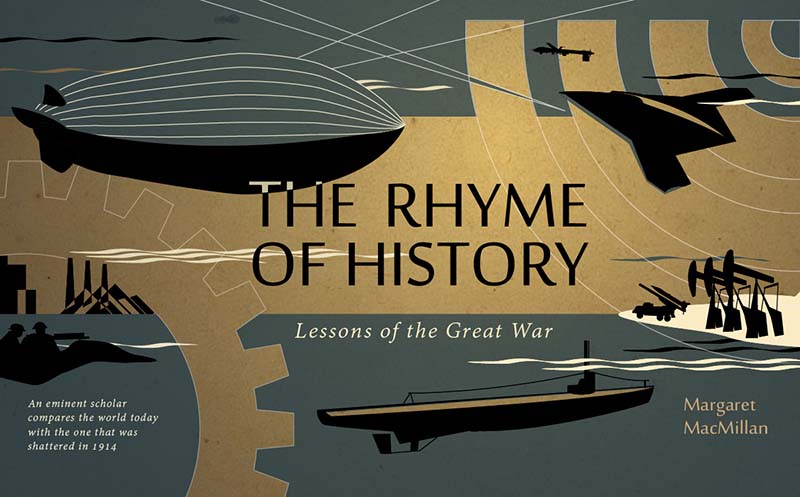
The Brookings Institute
This is the original essay that the New York Times article was based on (see above). The Brookings Institute essay examines the subject in greater depth and is accompanied by some wonderful illustrations.
1914: Day by Day
BBC Radio | 9th July
Margaret MacMillan chronicles the events leading up to the First World War. Each episode draws together newspaper accounts, diplomatic correspondence and private journals from the same day exactly one hundred years ago, giving a picture of the world in 1914 as it was experienced at the time.
The series tracks the development of the European crisis day by day, from the assassination of Archduke Franz Ferdinand through to the first week of the conflict. As well as the war, it gives an insight into the wider context of the world in 1914 including the threat of civil war in Ireland, the sensational trial of Madame Caillaux in France and the suffragettes' increasingly violent campaign for votes for women.

Site Design: Steep Hill Productions
